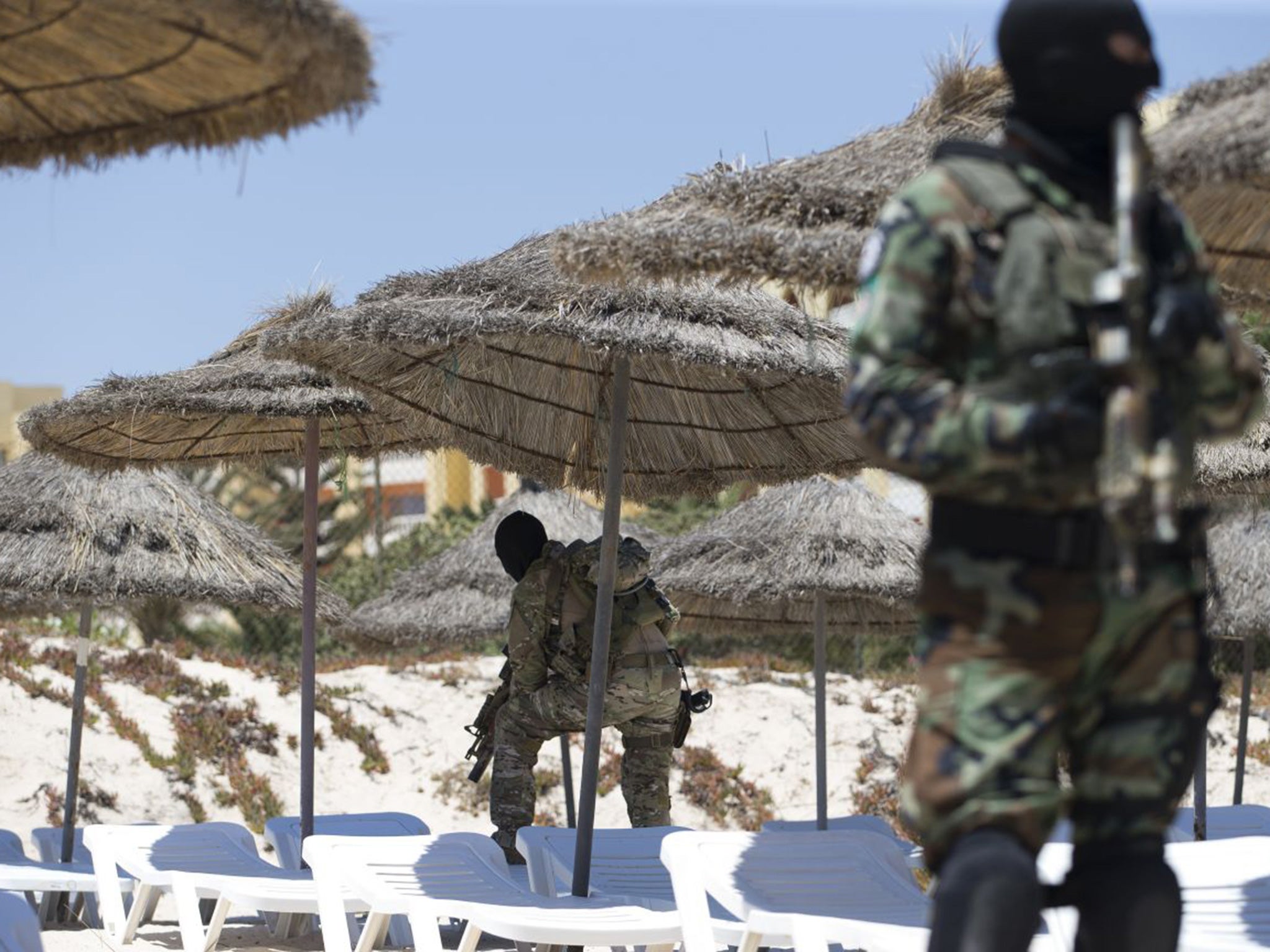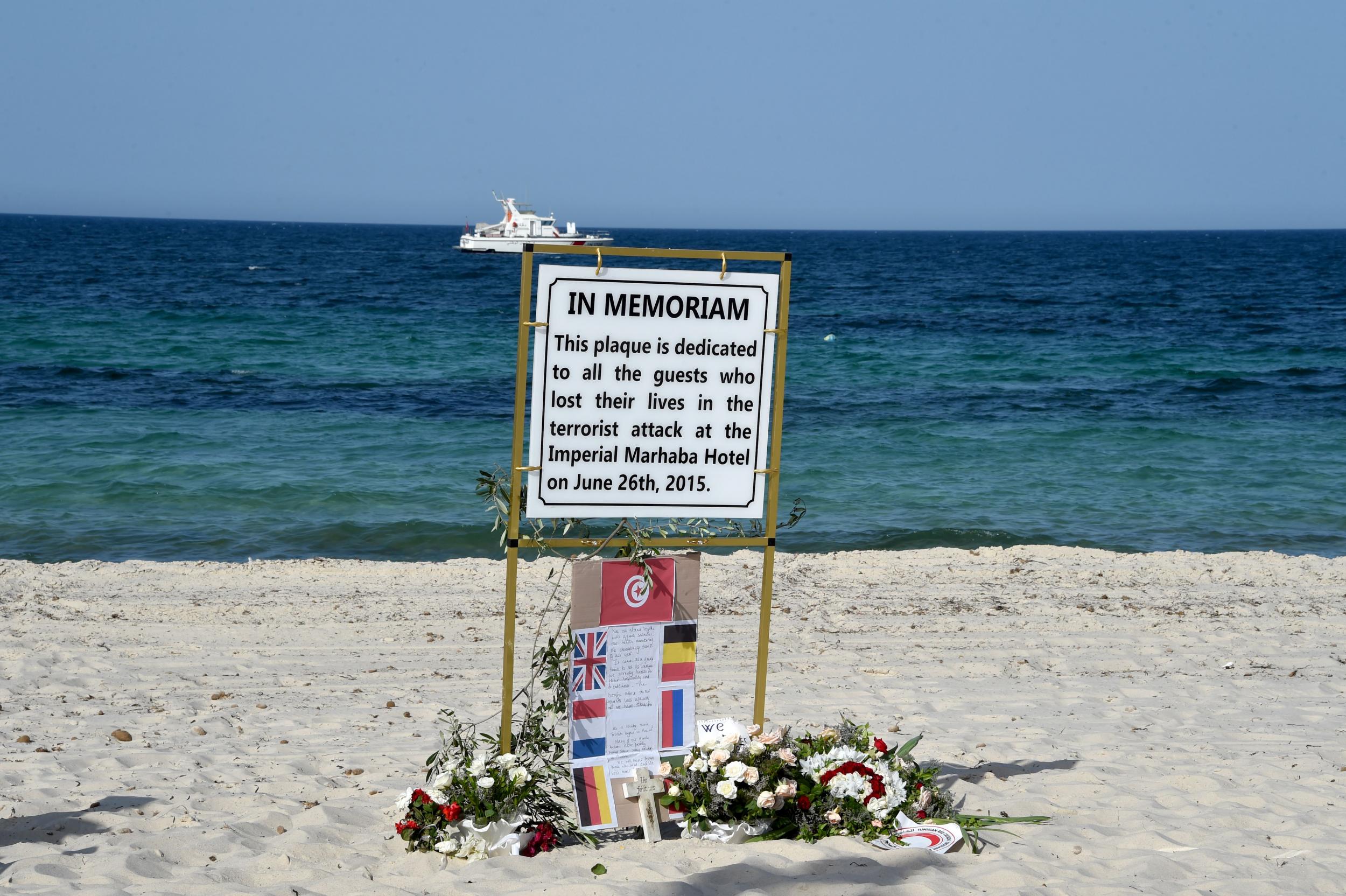Tunisia inquests verdict: Coroner finds British victims of Isis-inspired beach massacre 'unlawfully killed'
Judge Nicholas Loraine-Smith finds 30 tourists were not 'neglected' by hotel and tour operators

A coroner has ruled that 30 British tourists massacred by an Isis gunman in Tunisia were not the victims of neglect by hotel operators and travel companies, despite a "shambolic" security response.
They were among 38 victims of the shooting by Seifeddine Rezgui, a former break dancer turned extremist, in Sousse on 26 June 2015.
Judge Nicholas Loraine-Smith found his victims had been “unlawfully killed” at the five-star Hotel Imperial Marhaba at the conclusion of inquests held at the Royal Courts of Justice.

Lawyers representing their families argued that holiday firm TUI and hotel operators did not take the terror threat to Tunisia seriously following a previous attack on the Bardo Museum, and wrongly assured tourists the destination was safe.
Andrew Ritchie QC, counsel to victims’ relatives, said there had been “gross neglect” but Howard Stevens QC, representing TUI, dismissed the call and said “matters could have been worse” during the terror attack.
The coroner could not “simply dismiss the security presence”, he argued, claiming that if there were additional CCTV cameras or guards at the beach it “cannot be said that any of these measures would probably have made a difference”.
Judge Loraine-Smith said there were a lot of “what ifs” around the case and better hotel security may simply have meant more people died on the beach, rather than inside the building.
As the packed courtroom watched in silence, he said the only factor that may have made a material difference was if the hotel had armed guards, which was "not a realistic option" given Tunisia's gun laws.
The coroner condemned the police response as at best “shambolic” and at worst “cowardly” but said case law limited his ability to make a neglect finding.
“The simple but tragic truth is a gunman armed with arms and grenades went into the hotel intent on killing as many tourists as he could,” he added.
The Government’s advice at the time urged tourists to be vigilant in Tunisia and listed recent terror attacks, warning of a risk but stopping short of advising them against visiting.
British citizens are now advised against “all but essential travel” in the entire country, with all travel prohibited in volatile border areas.
The Sousse attack came three months after 24 people were killed in a terror attack at Bardo National Museum in Tunis, which was later linked to the same cell of Isis militants.
Rezgui, who had undergone militant training in Libya, hit his AK-47 in a beach umbrella before opening fire on the beach at 11.50am, massacring tourists for at least 20 minutes before being chased away by Tunisian hotel employees.
He was shot dead minutes later by police, who arrived after local security forces "deliberately and unjustifiably slowed down" responding to the attack according to a report by a Tunisian judge.

The hotel had just a handful of unarmed guards, the inquests found, while one group of police returned to get more weapons before heading to the beach, and another fainted on arrival from fear.
The coroner found police could have been effective but said a direct link between the security response and deaths could not be proved.
Some of the families of those caught in the massacre said they raised concerns with TUI after the massacre but were assured Tunisia was “100% safe”.
Paul Thompson said he and his wife were “pushed” towards choosing Tunisia and told the atrocity was a “one-off”, adding that another travel agent likened it to avoiding Skegness if there was an attack in London.
A Thomson travel agent told the inquest she did not give a safety guarantee to the couple, and that she would not say somewhere is completely safe.
Families may now launch a claim for neglect to civil courts over the attack, which was the worst on British citizens since the 7/7 bombings hit London in 2005.
Bookmark popover
Removed from bookmarks